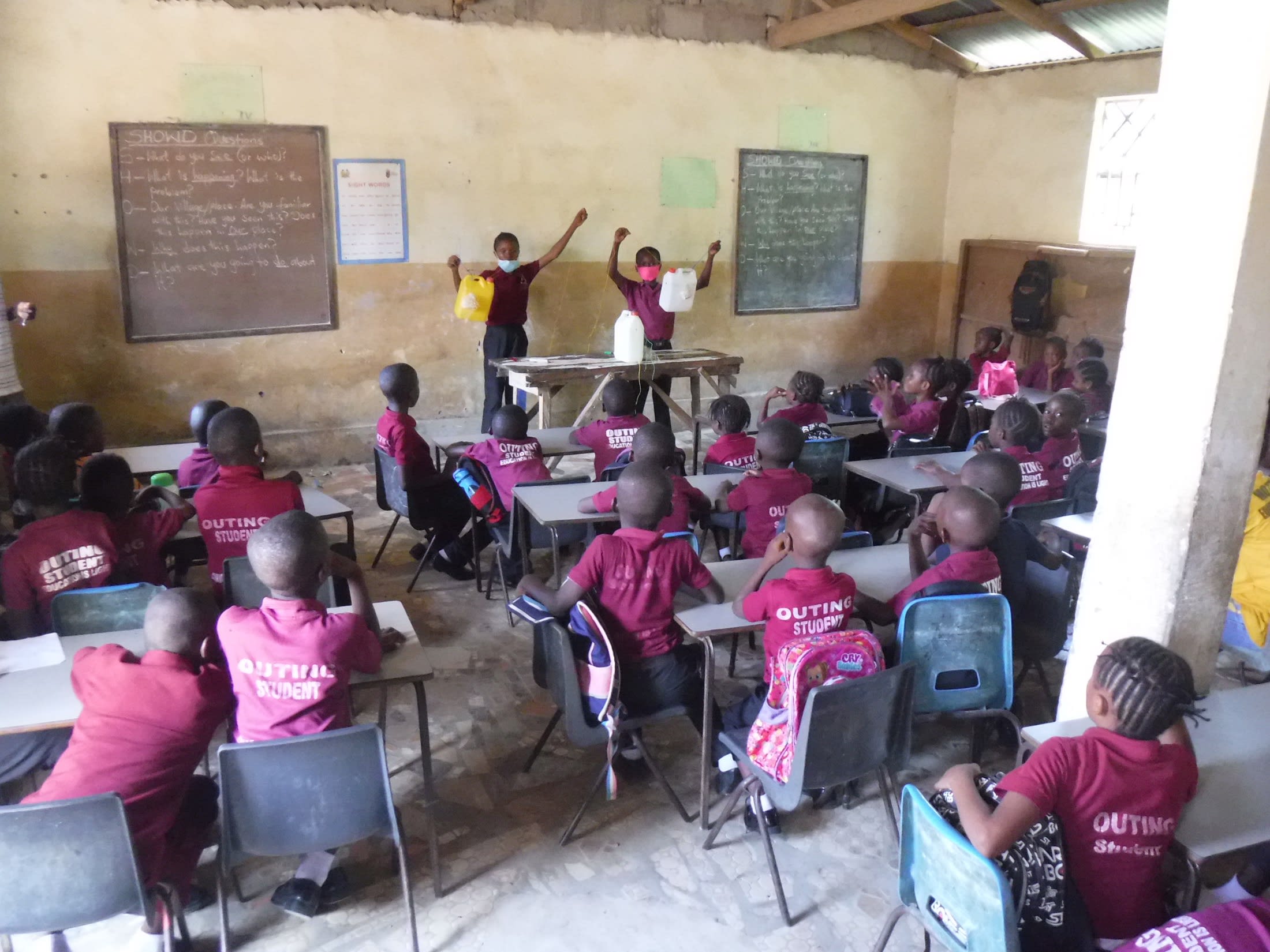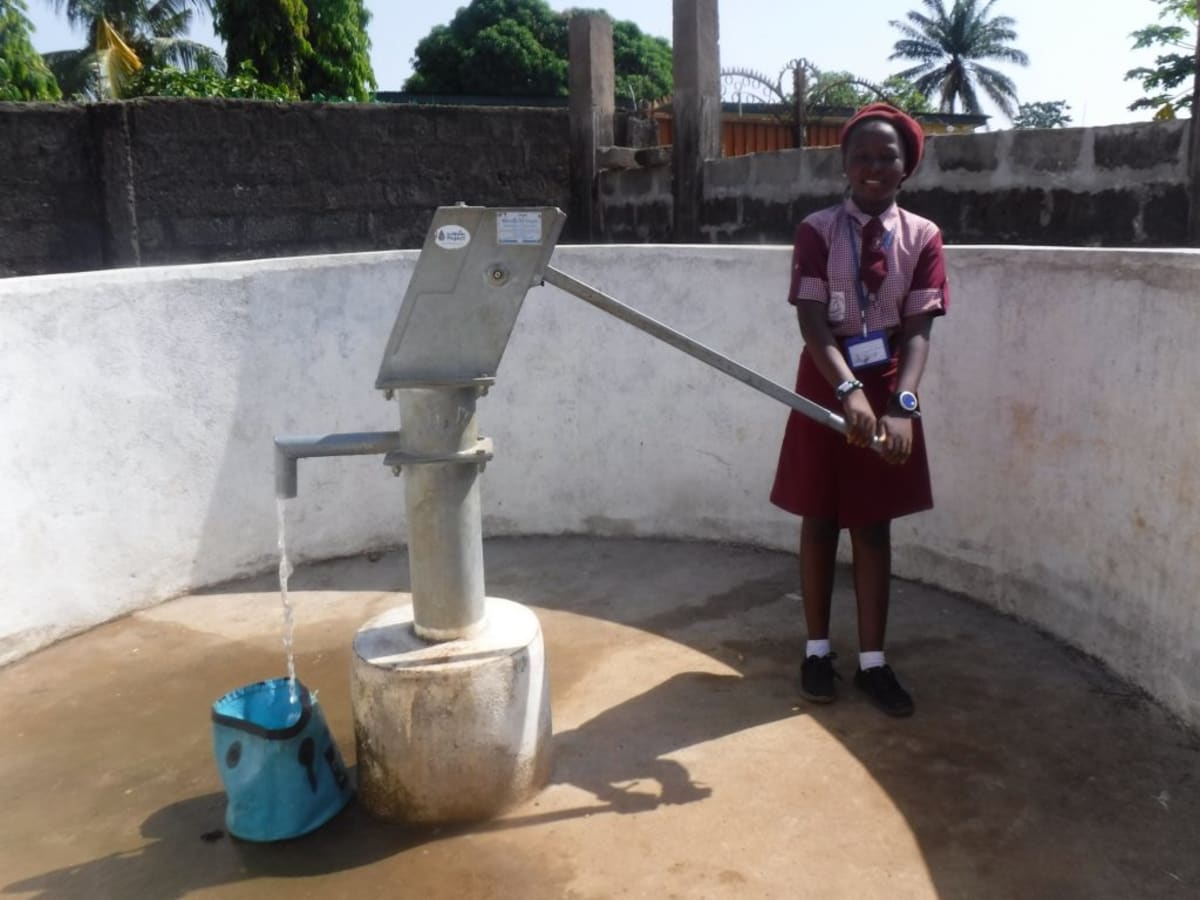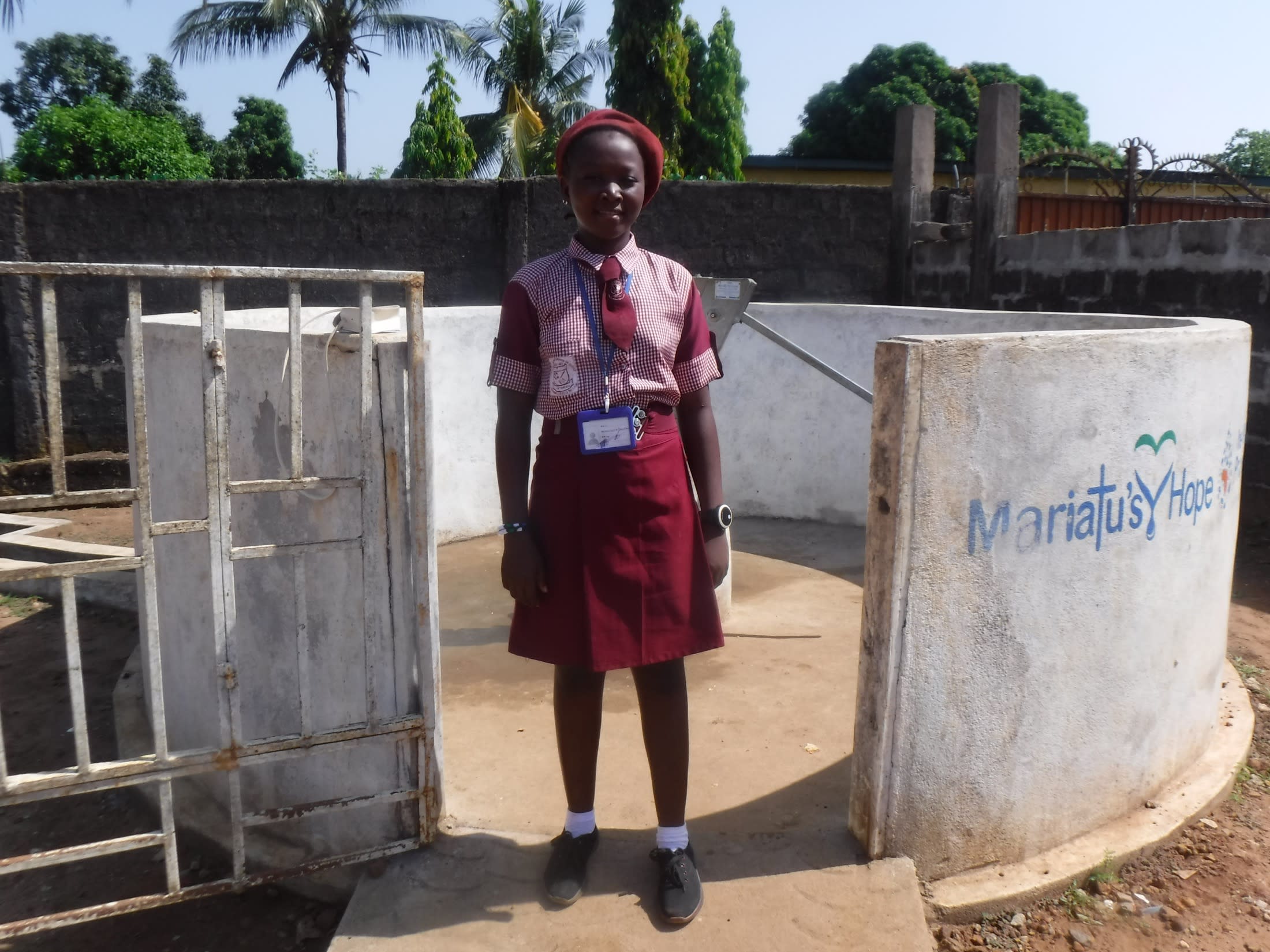Jesus is the Way School was founded in April 1995 by Reverend Kadie Vandy as a small primary and secondary school. She saw the need for more schools in the community to reduce class congestion at other schools and support the government's free quality education efforts. The school began with just 30 pupils and expanded to have pre-primary students in 2001. Today, more than 437 students attend the school.
The growth of the school is missing a crucial thing - a source of safe, reliable water. The main water point for the school is an open well. A rope is tied to the end of a five-gallon rubber bucket that has to be hoisted up the depth of 50 feet, making it impossible for most students to accomplish. When - and if - the staff responsible for fetching water cannot provide the needed amount, the older students are asked to give a helping hand.
"Water duty is always on my students, and in most activities, the older boys and girls will be the lead participants. Morning and afternoon, my students are taken away from their classes and asked to spend half an hour to an hour fetching water. I am absolutely not very pleased about not having access to clean and safe water for my students," said Principal Alfred Kallokoh.
Each day at school, water has to be fetched early in the morning and early in the afternoon. The afternoon water is used to clean latrines and other areas that need frequent cleaning within the school.
Each time the rope and bucket are plunged into the well, it takes with it bacteria that further contaminate the already dirty water source. The water table has dropped to the point that it interrupts the availability of water to the school pupils, making it harder for students to supply their school's water needs. People that drink water from an open and unprotected well are prone to fever, malaria, typhoid, diarrhea, dysentery, and cholera.
What we can do:
New Well
We will be drilling is centrally located and will relieve many people of the long journey to fetch water. This project will relieve the people here of their water challenges.
Our team will drive over the LS200 mud rotary drill rig and set up camp for a couple of nights. Once the well is drilled to a sufficient water column, it will be cased, developed, and then tested. If these tests are positive, our mechanics will install a new India Mark II pump.
This community has been pushed to open contaminated well for their water. By drilling this borehole, Jesus is the Way School will be provided with plenty of accessible clean drinking water.
Training
There will be hygiene and sanitation training sessions offered for three days in a row.
Community members will learn how to make a hands-free handwashing station called the "tippy-tap." We will use these tippy taps for handwashing demonstrations and will also teach about other tools like dish racks and the importance of properly penning in animals. We will highlight the need to keep restrooms clean, among many other topics.
This training will also strengthen a water user committee that will manage and maintain this new well. They will enforce proper behavior and report to us whenever they need our help in solving a serious problem, like a pump breakdown.



 Rehabilitation Project
Rehabilitation Project































